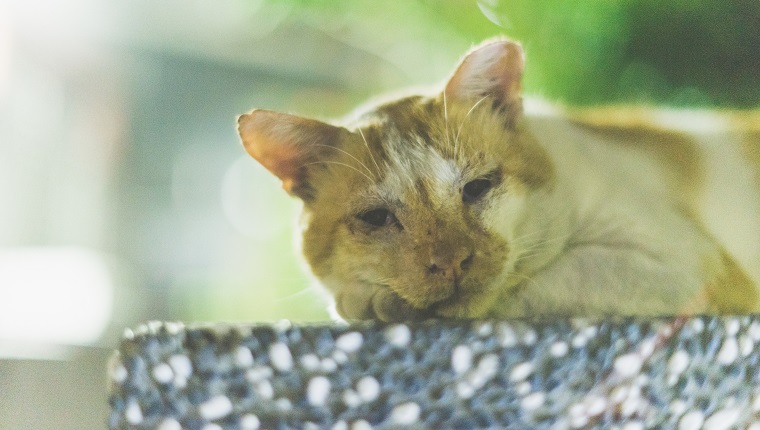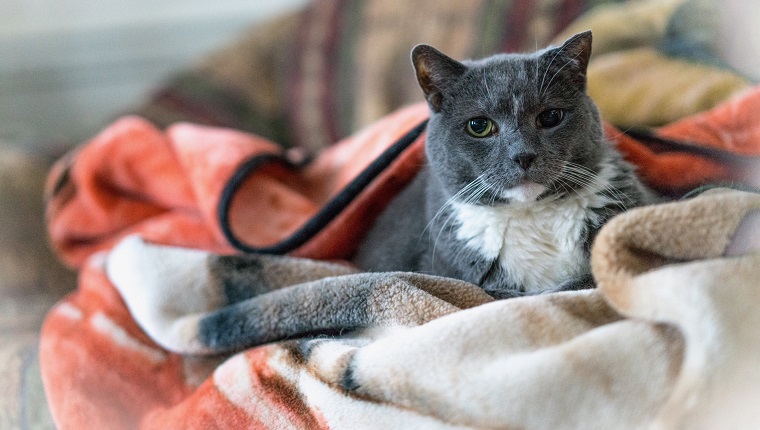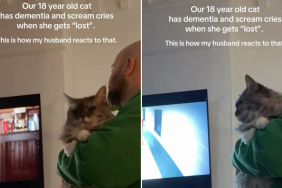Dementia in cats, also known as cognitive dysfunction syndrome (CDS), is a medical condition that can set in as a cat’s brain ages. It can affect a feline’s spatial awareness, responsiveness, and memory functions.
The condition gradually worsens over time, and it seems to be most common in senior kitties who are over the age of ten.
If you see signs that your cat might be developing cognitive dysfunction of any kind, then you must consult your veterinarian for a proper diagnosis and advice. Here’s what you should know about the symptoms, causes, and treatments of dementia in cats.
Symptoms Of Dementia In Cats
Dementia in cats can cause a great number of symptoms. Some of the most common general symptoms include:
- Seeming confused and disoriented
- Memory loss (such as forgetting where bowls and litter boxes are)
- Anxiety
- Loss of appetite
- Erratic sleep cycle
- Strange vocalizations
- Incontinence
Causes Of Dementia In Cats

The exact cause of dementia in cats is not definitively known, but it is linked to a cat’s brain aging. In some cases, genetic factors have been suggested as causes.
In terms of age, studies have suggested that almost a third of cats who are aged over eleven will show at least one sign of CDS, and that number rises to half of all cats aged 15 or over.
Veterinary Treatments
If you suspect that your cat is developing dementia, your veterinarian will want to conduct a full physical examination of your cat. They’ll take blood and urine tests, as well as X-rays and ultrasounds. A key stage in diagnosis is ruling out other conditions that might be causing similar symptoms.
If the vet confirms their diagnosis, lifestyle measures and changes are essential to managing the condition. It’s important to make sure that your cat has enough mental stimulation. Your vet can help suggest kitty puzzles and toys that can keep your cat alert.
Switching to a healthier diet and adding certain supplements can sometimes help cats who are suffering from CDS. Your vet can advise you on any dietary changes, which might also include supplements such as beta-carotene, vitamins C and E, plus omega-3 fatty acids.
Sometimes, vets recommend medication as a way to help cats who are living with cognitive dysfunction. As always, if your vet prescribes any medicine for your feline, then it is vital that you stick to the precise dosage and frequency instructions and complete the full course of medication.
Unfortunately, there is no cure for CDS, but keeping up regular visits to your vet can help you accurately monitor the quality of your kitty’s life and their general state of health.
Has your cat started to develop dementia? What sort of lifestyle changes are helping your cat live comfortably? Tell us all about it in the comments below.









